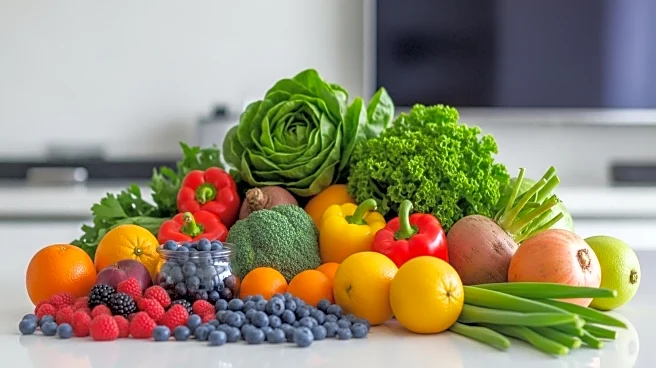What's Happening?
The UK government is set to implement a ban on 'junk food' advertising on TV before 9pm, aiming to tackle childhood obesity. This move has sparked discussions about the effectiveness and implications of such restrictions. Critics argue that the definition of 'junk food' is flawed, as it includes items like fresh orange juice and sugar-free granola. The ban is reminiscent of past advertising restrictions, such as those on tobacco, which led to creative shifts in marketing strategies. The debate highlights the challenges of regulating advertising while balancing public health goals.
Why It's Important?
The ban on junk food advertising is a significant public health measure aimed at reducing childhood obesity. However, it raises questions about the effectiveness of such regulations and their impact on the advertising industry. The restrictions could lead to shifts in marketing strategies, with companies potentially exploring alternative media like radio or digital platforms. This situation underscores the ongoing tension between public health objectives and commercial interests, highlighting the need for innovative solutions that address both concerns.
Beyond the Headlines
The ban could have broader implications for the advertising industry, prompting a reevaluation of how products are marketed to children. It may also influence future regulatory measures in other countries, as governments seek to address similar public health challenges. The debate over what constitutes 'junk food' could lead to further discussions about food labeling and consumer education, potentially impacting food industry practices and consumer perceptions.











